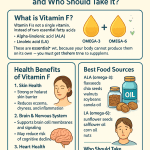According to a nutritionist and dietitian, various types of omega-3 supplements are available in the market and pharmacies. Individuals should choose a specific type based on their needs. Importantly, omega-3 supplements must be mercury-free, and the packaging must explicitly state this.
Omega-3 is a type of essential fatty acid that the body cannot produce and must be obtained through foods rich in this compound or through dietary supplements. This compound is found in both plant and animal food sources, but animal products contain higher and more absorbable amounts of omega-3. Fatty fish are a rich source of omega-3, while plant-based sources of this fatty acid include seeds and nuts such as hemp, flaxseed, soy, olives, canola, and walnuts.
Benefits of Omega-3 Fatty Acids
Omega-3 is effective in preventing cardiovascular diseases, inhibiting blood clots, promoting brain cell growth, reducing blood triglycerides, regulating heartbeat, lowering blood pressure, and increasing HDL (good cholesterol). It supports the health of the brain and nervous system, especially in individuals with MS, and reduces pain from joint inflammation and arthritis. Due to its anti-inflammatory properties, it can also help manage autoimmune diseases.
Research indicates that this fatty acid increases the IQ of infants. In the elderly, it helps maintain the structure and function of brain cells, enhances cognitive abilities, and lessens the severity of cognitive decline. Regular consumption of this fatty acid can strengthen memory and reduce the risk of Alzheimer’s disease. Essential fatty acids, including omega-3, are also commonly referred to as Vitamin F.
Which Omega-3 Supplements are Most Suitable?
Dr. Mohammad Amani, a nutritionist and dietitian, explains that there are several types of omega-3 supplements available, and he reviews a few of them.
- High DHA: This type of omega-3 supplement is recommended for the visual system, maintaining proper brain function, supporting cerebral blood vessels, preventing strokes, and helping to increase the elasticity of blood vessels.
- High EPA: This supplement has a positive effect on the cardiovascular system, lowers cholesterol, reduces inflammation in the body, and decreases the incidence of atherosclerosis.
- Mega Omega: This model is often plant-based, derived from vegetable oils, and contains omega-3, omega-6, and omega-9. This type of supplement must be converted into effective compounds in the body, but because the conversion rate is very low and absorption is poor, plant-based omegas are not generally recommended.
- Omega-3 Syrup (Eternawit): This is a high-dose omega-3 syrup that is beneficial for boosting the immune system and enhancing the nervous and brain systems of children and adolescents, though adults can use it as well.
- Omega Vision: This is a good supplement for eye health and for diabetic patients.
Given that non-plant-based omega-3 supplements often have a fishy smell and taste, there is a type available on the market that is flavored with orange essence, making it a suitable option for those who find the taste of fish unpleasant. However, the most critical point is that omega-3 supplements must be mercury-free, and the “mercury-free” label must be clearly written on the product’s packaging.
The Best Time for Consumption
The best time to take omega-3 supplements is with a meal, particularly a fatty meal, as this will enhance its effectiveness.
Individuals with blood disorders, those taking aspirin or warfarin, bipolar patients, people with allergies to fish or animal products, patients with liver fibrosis, individuals with weakened immune systems, and those with diabetes or heart problems must consult a doctor before taking omega-3 supplements.








Post a comment